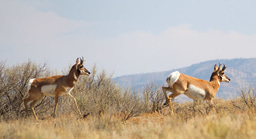Market-based Conservation Approaches

The Kinship Conservation Fellows Program was established in 2001 and has so far trained more than 282 conservationists around the world. The program aims to develop a global community of leaders that are dedicated to collaborative approaches to environmental issues, with an emphasis on economic incentives and market-based principles. Fellows join a global community where they can connect with past cohorts and experts to work on innovative ideas that maximize conservation impact. The Fellowship is held annually at the Western Washington University in Bellingham, Washington, USA.
I first encountered the fellowship programme around 2012 when I started working for WWF South Africa’s Land Programme – a programme of work that supports current efforts in protected areas expansion through land purchase and biodiversity stewardship. Since then I have used the platform as a useful source of information for learning about innovative projects around the world. This has helped to further develop my interest and understanding of diverse land protection and financing mechanisms such as conservation easements, payment for ecosystem services programs, best practice and certification in sustainable agriculture, and other economic tools for conservation.
In 2017, I was selected to participate in the first Kinship regional workshop to be held in South Africa. The regional workshops are designed to advance the development of market-based tools in areas of the world where there is an identified training need and where such approaches remain underutilized. The lessons from this workshop were not only instrumental in how I supported projects in WWF, but also in helping me shift my thinking to taking on an entrepreneurial conservation approach. This is an important and necessary shift for those who operate in developing countries, as we need to reduce our reliance on international funding for conservation, diversify and support new actors in conservation, and promote the type of initiatives that can be self-sustaining.
South Africa presents a unique challenge as it is one of the world’s 17 megadiverse countries; however, it also has pressing socio-economic challenges, i.e. poverty, unemployment, and inequality. This makes it difficult for the country to balance economic development goals with the need for sustainability. As a result, we have a conservation sector that is oriented towards a development agenda. This is evident in initiatives that have been set up to address social issues through programmes such as the Expanded Public Work Programme, People and Parks, and the Land Reform and Biodiversity Stewardship Initiative.
As luck would have it, I was fortunate to be selected to join the 2021 Kinship Fellows Program. This opportunity came at just the right time as I am currently developing a new project that is focused on supporting nature-based community enterprises and livelihoods in protected areas. The project aims to enhance the socio-economic impact of protected areas by developing sustainable economic activities; thereby promoting the role of the biodiversity economy as part of the broader rural development strategy. The fellowship will support me in learning from the experiences of the various experts involved in the program, to understand the impact of this work in different regions of the world, learn how to use new economic tools, build my professional network, and to identify potential areas of collaboration for future projects.




Please sign in or register for FREE
If you are a registered user on WildHub, please sign in
Would be keen to know more about your projects and how they develop. All the best.
Thank you for sharing this Onkemestse. It would be great to share an update with the rest of the community on how you are finding the fellowship!